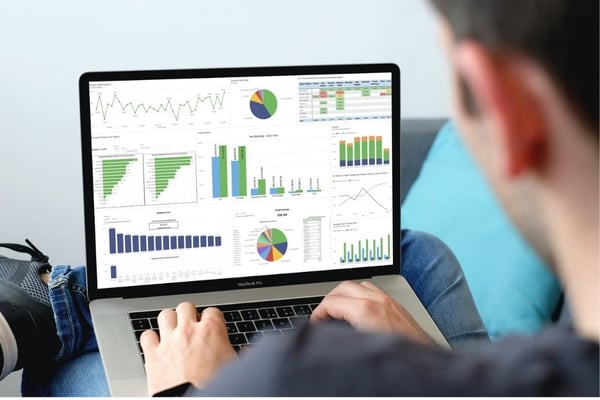Business Intelligence for Logistics
Transform your logistics data into actionable insight
A company can’t truly understand how its transportation logistics works without historical data — loads of data. The business science of transportation logistics is built on cold, hard metrics in the same way that accounting is built on dollar signs and HR is built on people. But here’s the problem. Data on its own can’t get the job done; raw data lacks transportation insight. The deeper challenge of transportation logistics isn’t just about collecting and storing data — it’s about turning that data into actionable insight with a wide-range of data analysts and world-class solutions pouring over it. You have to know what to do with all those numbers.
How are you using your transportation/logistics data today? Is your data languishing in poorly understood spreadsheets that no-one sees or uses? Or is it fueling productive discussions about how to make better business decisions, not just in logistics but across your entire organization?
IL2000’s approach to transportation data goes further than a weekly data dump. IL2000’s BI dashboards use both descriptive and predictive analytics to transform your transportation data into information with a unique suite of analytical tools. Together, these tools and valuable insights enhance visibility and actionability across every corner of your operation.
Here’s how IL2000’s BI Dashboard will make your company smarter:

- Connect the past with the present in every business cycle. Seamlessly integrate historical transportation data into your existing system. Gain a more nuanced approach to managing your time-sensitive business cycle, set accurate achievement benchmarks and efficiently allocate resources.
- Shed light on previously hidden opportunities. Analyze your data for hidden trends: Confirm or falsify hypotheses, pinpoint missed opportunities, identify new markets.
- Have more objective, fact-driven conversations with reporting tools that build a clear and practical link between logistics and the rest of your organization — from accounting and finance to operations, procurement, purchasing, and even customer service.
Here’s a small sample of the kinds of reports you can produce:
-
- GL account coding.
- Freight accrual.
- Job costing (transportation as a % of goods sold).
- Freight expenses by company location, vendor, or customer.
- Lost opportunity cost and operator compliance.
- Year-over-year outlook, time period comparisons.
- Carrier compliance and delivery statistics.
- Outbound and inbound shipment volume.
- On-time delivery performance by customer or vendor.
Get more from your transportation data with IL2000 BI solutions

